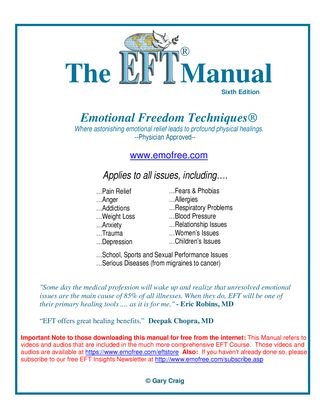Published 12/2022
MP4 | Video: h264, 1280×720 | Audio: AAC, 44.1 KHz
Language: English | Size: 5 GB | Duration: 3h 54m
Learn Fundamentals of I/O Psychology | Research and Practice.
What you’ll learn
Introduction
INTRODUCTION TO COURSE
Introducing industrial and Organizational Psychology
Definition and what IO Psychology is?
Categories of I-O Psychology
Historical Background of I/O Psychology (1903-1960)
Historical Background of I/O Psychology (1980-200s)
Research Methods in I/O Psychology
Job analysis and its importance?
Components of a job analysis
Conducting a job analysis
The Psychology of Recruiting and Selecting Employees
How do a proper job and resume analysis determine effective selection?
Types of Selection Measures
Introduction to training and development
Methods of training
The implementation of organizational development
Achievement
Work Motivation
Theories of Motivation
4 Employee Motivation Strategies
Competency-based interviews: A detailed over-view
How to Use Competency-Based Interviewing
Marking the right way
Performance Management: A detailed overview
The Fundamental Elements for effective performance management
Real-world examples of performance management
Employee Attitudes
Job satisfaction
Commitment
Employee health and safety overview
Employer health and safety responsibilities
Role of Employees in Health and Safety in the Workplace
Productive and Counterproductive Behavior – An overview
Counterproductive behavior in-depth
Impacts and strategies
Work-related Stress
Role of I/O Psychologists
Employee Well-Being: The future
Understanding Group Processes
Models of Group Processes
Work teams
Leadership
Leadership theories
Most common approaches to leadership in I-O psychology
Organizational leadership
Overview of Careers in I/O Psychology
Potential careers for I/O Psychologists.
Requirements
There are no necessary requirements to enroll. I only ask to come open-minded and ready to learn.
Basic Understanding of English Language.
Description
Welcome to the complete I/O Psychology Course !In this course, You will be able to get the maximum knowledge on these topics,1- Introduction.2- Introduction To Course.3- Introducing industrial and organizational psychology.4- What exactly I-O Psychology is?5- Categories & Aims of I-O Psychology.6- Historical Background of I/O Psychology (1903-1960).7- Historical Background of I/O Psychology (1980-200s).8- Research Methods in I/O Psychology.9- Job analysis and its importance?10- Components of a job analysis.11- Conducting a job analysis.12- The Psychology of Recruiting and Selecting Employees.13- How do a proper job and resume analysis determine effective selection?14- Types of Selection Measures.15- Introduction to training and development.16- Methods of training.17- The implementation of organizational development.18- Achievement.19- Work Motivation.20- Theories of Motivation.21- Employee Motivation Strategies.22- Competency-based interviews: A detailed over-view.23- How to Use Competency-Based Interviewing.24- Marking the right way.25- Performance Management: A detailed overview.26- The Fundamental Elements for effective performance management.27- Real-world examples of performance management.28- Employee Attitudes.29- Job satisfaction.30- Commitment.31- Employee health and safety overview.32- Employer health and safety responsibilities.33- Role of Employees in Health and Safety in the Workplace.34- Productive and Counterproductive Behavior – Overview.35- Counterproductive behavior in-depth.36- Impacts and strategies.37- Work-related Stress.38- Role of I/O Psychologists.39- Employee Well-Being: The future.40- Understanding Group Processes.41- Models of Group Processes.42- Work teams.43- Leadership – overview.44- Leadership theories.45- Most common approaches to leadership in I-O psychology.46- Organizational leadership.47- Overview of Careers in I/O Psychology.48- Potential careers for I/O Psychologists.We will use organizational theories to systematically analyze how an organization operates and can best be managed. Organizational theories highlight certain features of an organization’s structure and environment, as well as its processes of negotiation, production, and change. Each provides a lens for interpreting novel organizational situations and developing a sense for how individual and group behaviors are organized. Theories are valuable for the analyst and manager because most organizational problems are unique to the circumstances and cannot be solved by simple rules of thumb. Armed with a toolset of organizational theories, you will be able to systematically identify important features of an organization and the events transforming it; choose a theoretical framework most applicable to the observed mode of organizing; and use that theory to determine which actions will best redirect the organization in desired directions. In sum, the course has three goals: to become familiar with a series of real-world organizational phenomena; to learn different theoretical perspectives that can elucidate these phenomena; and to apply these different ways of “seeing” and managing organizations to cases. In such a fashion, the course is designed to actively bridge theory and practice, exposing students to a variety of conceptual tools and ways to negotiate novel situations.Enroll Now !!
Overview
Section 1: Introduction
Lecture 1 Introduction
Lecture 2 Introduction To Course.
Section 2: Introducing industrial and organizational psychology
Lecture 3 Introducing industrial and organizational psychology
Lecture 4 What exactly I-O Psychology is?
Lecture 5 Categories & Aims of I-O Psychology.
Section 3: Historical background and Research methods in I/O Psychology
Lecture 6 Historical Background of I/O Psychology (1903-1960)
Lecture 7 Historical Background of I/O Psychology (1980-200s)
Lecture 8 Research Methods in I/O Psychology
Section 4: JOB ANALYSIS
Lecture 9 Job analysis and its importance?
Lecture 10 Components of a job analysis
Lecture 11 Conducting a job analysis
Section 5: Selection Decisions and Personnel Law
Lecture 12 The Psychology of Recruiting and Selecting Employees
Lecture 13 How do a proper job and resume analysis determine effective selection?
Lecture 14 Types of Selection Measures
Section 6: TRAINING AND DEVELOPMENT
Lecture 15 Introduction to training and development
Lecture 16 Methods of training
Lecture 17 The implementation of organizational development
Section 7: ACHIEVMENT AND MOTIVATION
Lecture 18 Achievement
Lecture 19 Work Motivation
Lecture 20 Theories of Motivation
Lecture 21 Employee Motivation Strategies
Section 8: The practice of competency-based interviews taking
Lecture 22 Competency-based interviews: A detailed over-view
Lecture 23 How to Use Competency-Based Interviewing
Lecture 24 Marking the right way
Section 9: PERFORMANCE MANAGEMENT
Lecture 25 Performance Management: A detailed overview
Lecture 26 The Fundamental Elements for effective performance management
Lecture 27 Real-world examples of performance management
Section 10: Job satisfaction & commitment
Lecture 28 Employee Attitudes
Lecture 29 Job satisfaction
Lecture 30 Commitment
Section 11: Employee Health and Safety
Lecture 31 Employee health and safety overview
Lecture 32 Employer health and safety responsibilities
Lecture 33 Role of Employees in Health and Safety in the Workplace
Section 12: Productive and Counterproductive Behavior
Lecture 34 An overview
Lecture 35 Counterproductive behavior in-depth
Lecture 36 Impacts and strategies
Section 13: Stress and Worker Well-Being
Lecture 37 Work-related Stress
Lecture 38 Role of I/O Psychologists
Lecture 39 Employee Well-Being: The future
Section 14: Group Processes and Work Teams
Lecture 40 Understanding Group Processes
Lecture 41 Models of Group Processes
Lecture 42 Work teams
Section 15: Leadership
Lecture 43 Leadership – overview
Lecture 44 Leadership theories
Lecture 45 Most common approaches to leadership in I-O psychology
Lecture 46 Organizational leadership
Section 16: Careers in I/O Psychology
Lecture 47 Overview of Careers in I/O Psychology
Lecture 48 Potential careers for I/O Psychologists.
Anyone who wants to acquire knowledge of IO Psychology. This is a complete course from beginner to advance level.,People who are struggling in organizations.,Anyone who started a new business.,Any student who missed his college or university classes and wants to learn what he missed in class, can easily learn everything regarding IO in this course.,Big and Small Firms who wants to grow more.,This course is for anyone interested in learning about organizational behaviors.,Anyone who’s just graduated and looking to apply for a job in biggest organizations.,HR/consultants who struggle while hiring new staff.,Anyone who wants to know how people react at work.
HOMEPAGE
https://anonymz.com/?https://www.udemy.com/course/learn-industrial-and-organizational-psychology/











Reviews
There are no reviews yet.